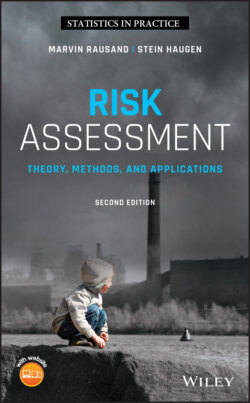Читать книгу Risk Assessment - Marvin Rausand - Страница 84
2.4.1.1 Classical Approach
ОглавлениеThe classical approach to probability is applicable in only a limited set of situations, where we consider experiments with a finite number of possible outcomes, and where each outcome has the same likelihood of occurring. This is appropriate for many simple games of chance, such as tossing coins, rolling dice, dealing cards, and spinning a roulette wheel.
We use the following terminology: An outcome is the result of a single experiment, and a sample space is the set of all the possible outcomes. An event is a set of (one or more) outcomes in that have some common properties. When an outcome that is a member of occurs, we say that the event occurs. These and many other terms are defined in Appendix A.
Because all possible outcomes have the same likelihood of occurring, we can find the likelihood that event will occur as the number of outcomes that belong to divided by the number of possible outcomes. The outcomes that belong to are sometimes called the favorable outcomes for . The likelihood of getting an outcome from the experiment that belongs to is called the probability of :
(2.1)
The event can also be a single outcome. The likelihood of getting a particular outcome is then called the probability of the outcome and is given by .
When – as in this case – all the outcomes in have the same probability of occurrence, we say that we have a uniform model.
